Ruben Östlund is a Swedish writer and director who has gained international acclaim for his provocative and thought-provoking films.
Here are some of his best films and what makes them worth watching:
“Force Majeure” (2014): This film tells the story of a family on a ski vacation in the French Alps, who find themselves caught up in a life-threatening avalanche.
The incident exposes the fault lines in the family’s relationships, leading to a fascinating exploration of gender roles and masculinity.
The film was highly acclaimed by critics and won the Jury Prize at the 2014 Cannes Film Festival.
“The Square” (2017): This satire takes aim at the art world, with a focus on a museum curator whose well-intentioned efforts to promote a new exhibition lead to unexpected consequences.
The film is a scathing critique of contemporary society and its values, and it won the Palme d’Or at the 2017 Cannes Film Festival.
“Play” (2011): This film is based on a true story of a group of black teenagers who robbed other children in Gothenburg, Sweden.
The film explores issues of race and class, and the social dynamics that underlie crime and violence. It was highly acclaimed by critics and won several awards at international film festivals.
“Involuntary” (2008): This film is a series of interconnected vignettes that explore the tensions and contradictions of modern society.
Each story revolves around a different character, but they all share a common theme of individuals struggling to fit in and conform to social norms.
The film won several awards at international film festivals, and is an intriguing exploration of contemporary society.
Overall, Ruben Östlund’s films are highly intelligent and thought-provoking, often exploring issues of power, masculinity, and societal norms.
They are visually striking and often feature long, static shots that encourage the viewer to reflect on the action and themes.
Best Ruben Östlund Movies
His work is a powerful commentary on contemporary society and an essential viewing for fans of intelligent and challenging cinema.
1. Force Majeure (2014)
“Force Majeure” is a Swedish drama film directed by Ruben Östlund and released in 2014. The film centers on a family on a ski holiday in the French Alps who experience a traumatic event that shakes their relationship to its core.
The film explores themes of masculinity, gender roles, family dynamics, and human behavior in the face of crisis.
The central incident of the film is a controlled avalanche that causes the family to panic and react in unexpected ways, particularly the father, Tomas. His reaction to the avalanche exposes deep-seated insecurities about his role as a father and husband.
“Force Majeure” was a critical and commercial success, and won the Jury Prize at the Cannes Film Festival.
The film is celebrated for its masterful direction, gripping tension, and subtle and nuanced exploration of human behavior.
If you like Ruben Ostlund’s work, on our sister site AuteurGraph we have a profile page, a visual film timeline, and a ratings page that gives a tonne of info and data about their career in a visualized form.
It is a powerful and thought-provoking drama that challenges its viewers to consider the complexities of human relationships and the ways in which we respond to crisis.
- Amazon Prime Video (Video on Demand)
- Johannes Bah Kuhnke, Lisa Loven Kongsli, Kristofer Hivju (Actors)
- Ruben Östlund (Director) - Ruben Östlund (Writer) - Erik Hemmendorff (Producer)
- (Playback Language)
- Audience Rating: R (Restricted)
2. The Square (2017)
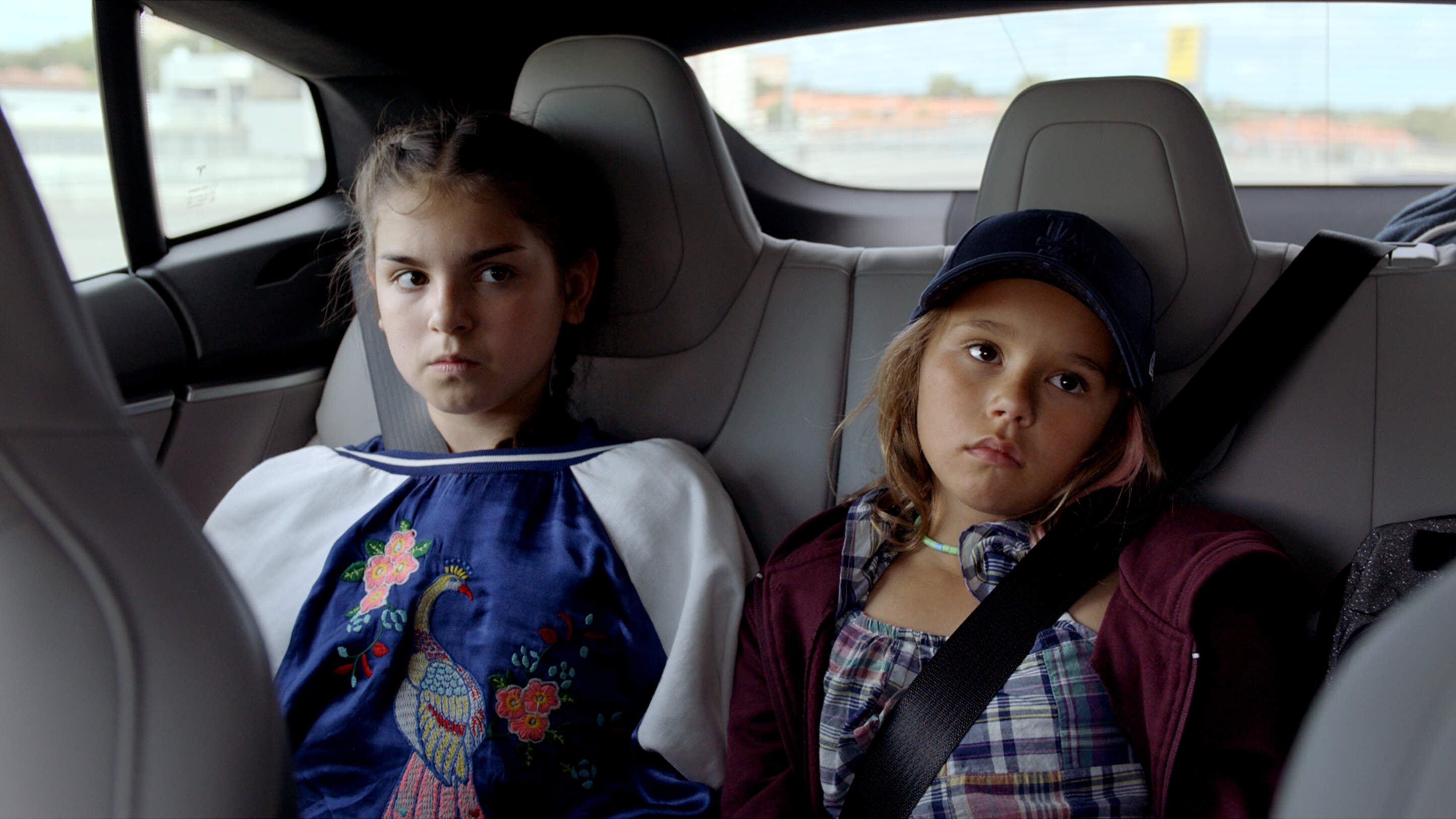
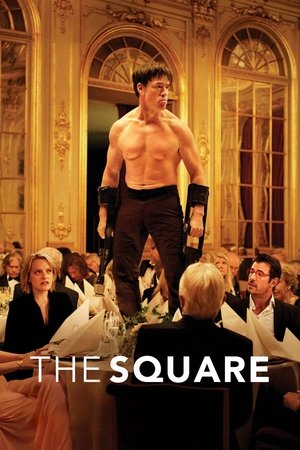
The Square
2017 • 2h 31min • ★ 6.8/10 • Denmark
Directed by: Ruben Östlund
Cast: Claes Bang, Elisabeth Moss, Dominic West, Terry Notary, Christopher Læssø
A prestigious Stockholm museum's chief art curator finds himself in times of both professional and personal crisis as he attempts to set up a controversial new exhibit.
“The Square” is a 2017 Swedish film directed by Ruben Östlund. The film won the Palme d’Or at the 2017 Cannes Film Festival and was also nominated for the Best Foreign Language Film at the 90th Academy Awards.
The film is a satirical commentary on the art world and contemporary society. The story revolves around Christian (played by Claes Bang), the curator of a contemporary art museum in Stockholm, who is preparing to launch a new exhibition titled “The Square”.
The exhibition is intended to be a symbol of compassion and trust, but Christian’s personal life and the challenges he faces at work soon disrupt his carefully curated world.
The film is highly intelligent and thought-provoking, exploring issues of class, power, and moral responsibility.
It features long, static shots that allow the viewer to reflect on the themes and implications of the action.
The satire is biting and humorous, but also has a deeper social commentary that is relevant to contemporary society.
The film also features a strong ensemble cast, including Elizabeth Moss, Terry Notary, and Dominic West.
Overall, “The Square” is a must-see film for fans of intelligent and challenging cinema. It is a highly original and thought-provoking work that explores complex issues in a highly engaging and entertaining way.
It is an important commentary on the role of art in contemporary society and a powerful reflection on the human condition.
No products found.
3. Triangle of Sadness (2022)
“Triangle of Sadness” is a 2022 comedy-drama film directed by Ruben Östlund.
The film tells the story of three characters: Bella, a successful supermodel played by Bianca Kronlöf, her manager and lover Aleksi, played by Claes Bang, and their new assistant, played by Alexander Salzberger.
The film explores the dynamics of power and privilege within the fashion industry and the relationships between these three characters.
As Bella and Aleksi prepare for a high-profile fashion show in Greece, they encounter a series of challenges and obstacles that test their professional and personal relationships.
Meanwhile, the naive and idealistic assistant becomes disillusioned with the fashion industry and begins to question his role within it.
The film is known for its biting satire and its incisive commentary on the fashion industry and the culture of celebrity.
Östlund’s signature style of using long takes and static camera shots is present throughout the film, and the performances of the lead actors have been praised for their depth and complexity.
“Triangle of Sadness” premiered at the 2022 Cannes Film Festival and received mixed reviews, with some critics praising its sharp wit and social commentary, while others found the film to be overly indulgent and self-indulgent.
Nevertheless, the film is regarded as an important exploration of the dark side of the fashion industry and the complex relationships between those who operate within it.
- Amazon Prime Video (Video on Demand)
- Thobias Thorwid, Harris Dickinson, Charlbi Dean (Actors)
- Ruben Östlund (Director) - Ruben Östlund (Writer) - Philippe Bober (Producer)
- English, Spanish, Portuguese (Playback Languages)
- English, Spanish, Portuguese (Subtitles)
4. Play (2011)
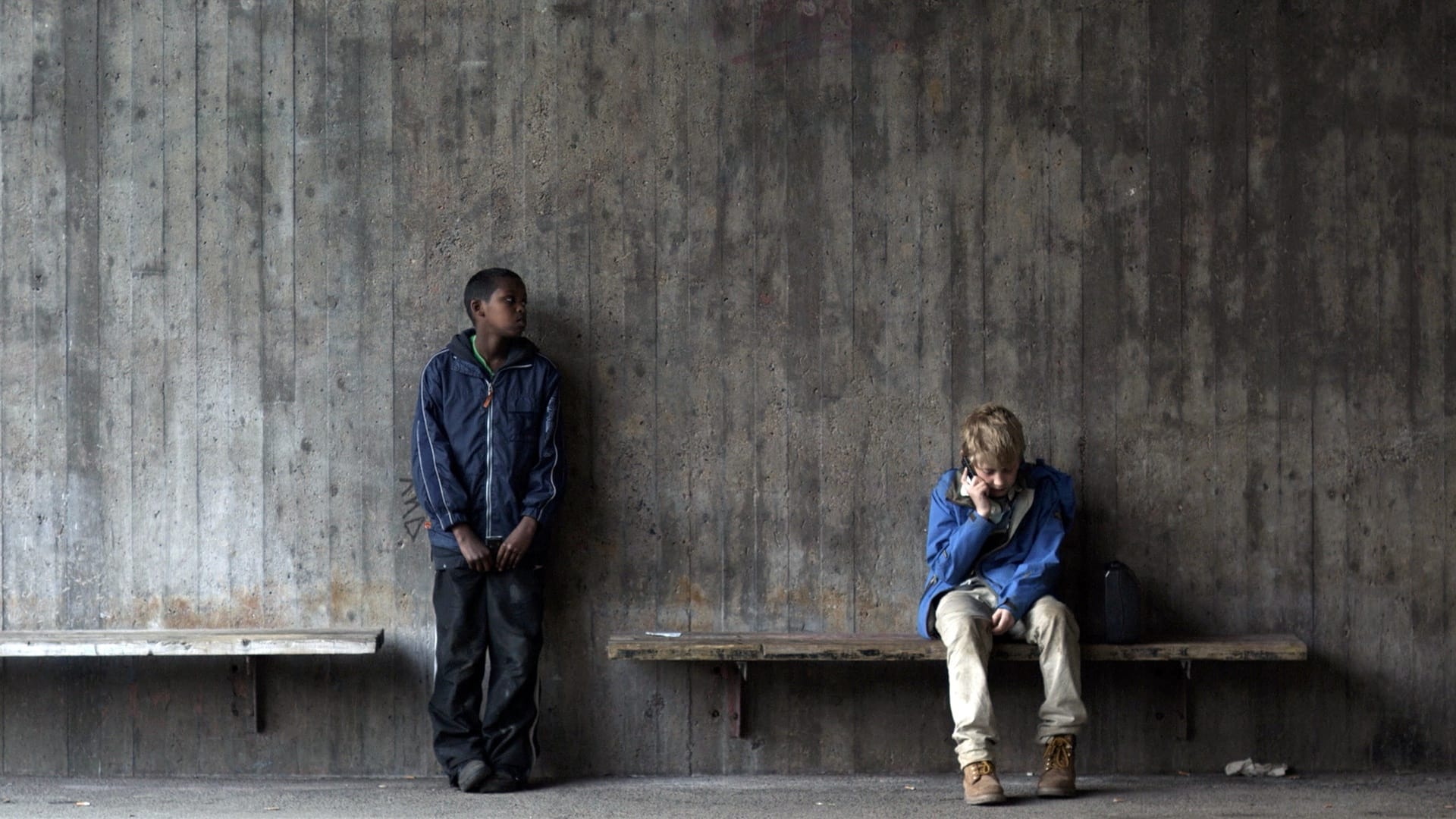
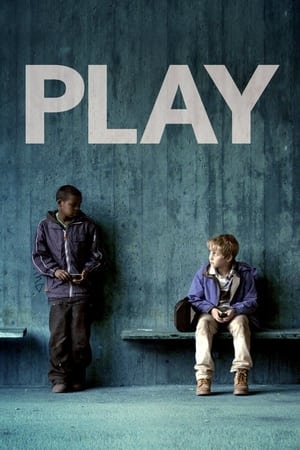
Play
Just a game?
2011 • 1h 58min • ★ 6.773/10 • Denmark
Directed by: Ruben Östlund
Cast: Anas Abdirahman, Sebastian Blyckert, Yannick Diakité, Kevin Vaz, John Ortiz
In central Gothenburg, Sweden, a group of boys, aged 12-14, robbed other children on about 40 occasions between 2006 and 2008. The thieves used an elaborate scheme called the 'little brother number' or 'brother trick', involving advanced role-play and gang rhetoric rather than physical violence.
Play is a 2011 Swedish drama film directed by Ruben Östlund. The film is based on a true story and explores themes of social dynamics, power, and youth culture.
Play tells the story of a group of young boys who are manipulated and robbed by a group of older boys in a shopping mall in Gothenburg, Sweden.
The film depicts the psychological and emotional impact of the robbery on both the victims and the perpetrators, and examines the complex social dynamics that allow the robbery to occur.
Play is notable for its realistic and observational style, with director Ruben Östlund using long takes and a static camera to capture the action.
The film is also praised for its incisive commentary on contemporary Swedish society, particularly its portrayal of the country’s racial and class tensions.
Play was well-received by critics and won several awards, including the Best Film award at the London Film Festival.
The film is regarded as a significant work in the oeuvre of Ruben Östlund and is seen as a thought-provoking and challenging exploration of contemporary social issues.
No products found.
5. Involuntary (2008)
“Involuntary” is a 2008 Swedish film directed by Ruben Östlund. The film is a collection of five loosely interconnected vignettes, each of which explores themes of conformity, social pressure, and group dynamics.
The stories in the film range from a group of men on a wilderness outing who pressure one of their own to jump off a cliff, to a classroom of schoolchildren who are encouraged by their teacher to ostracize a fellow student.
Each story highlights the ways in which individuals can be swept up in group dynamics, even when it goes against their better judgment or moral compass.
The film is known for its naturalistic and observational style, and for its ability to capture the small details of everyday life that reveal larger truths about human behavior.
It received critical acclaim for its incisive social commentary and its powerful exploration of the dynamics of power and control.
“Involuntary” is a challenging and thought-provoking film that asks difficult questions about our willingness to conform to group norms, even when it goes against our own values and beliefs.
6. The Guitar Mongoloid (2004)
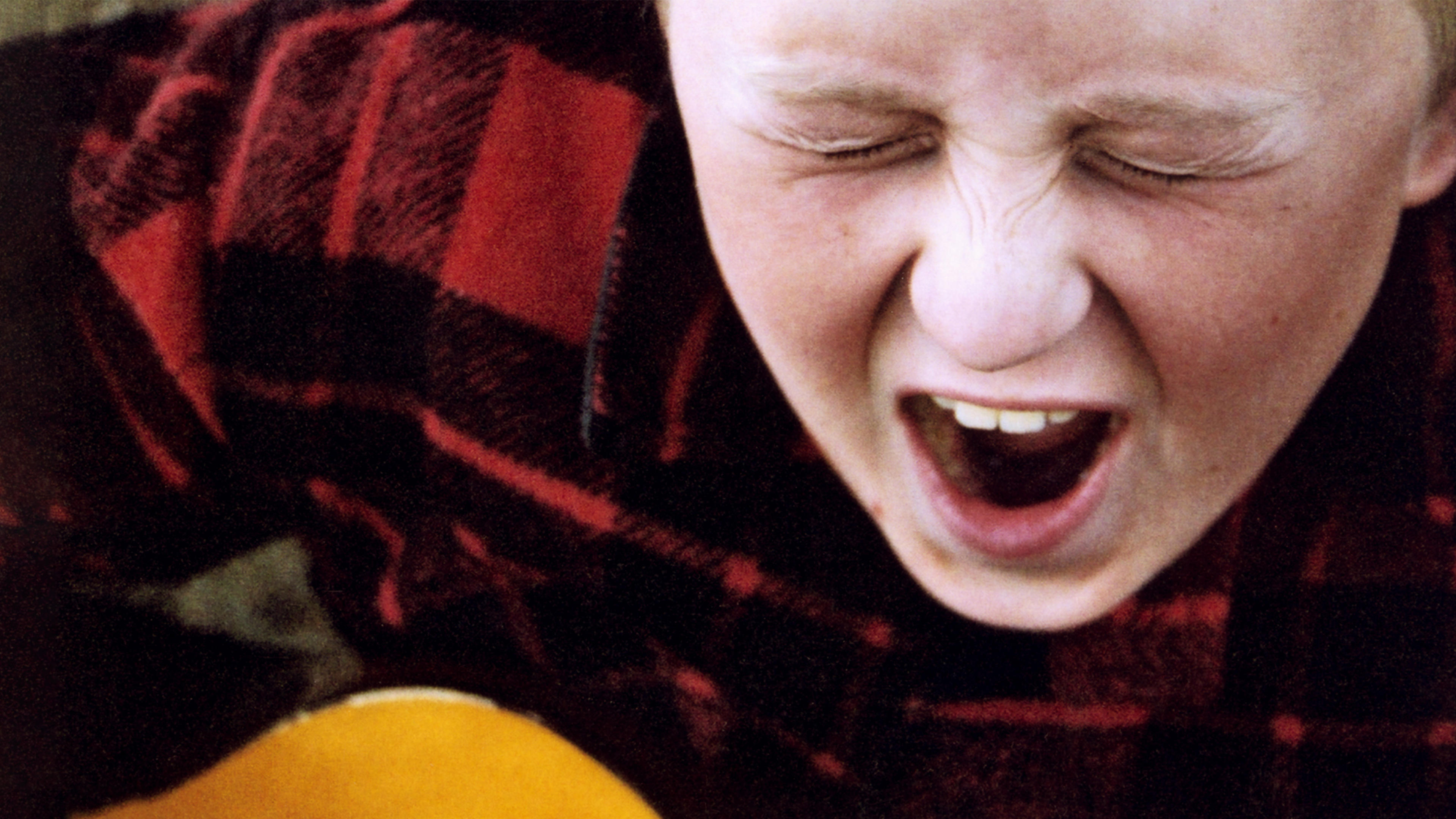
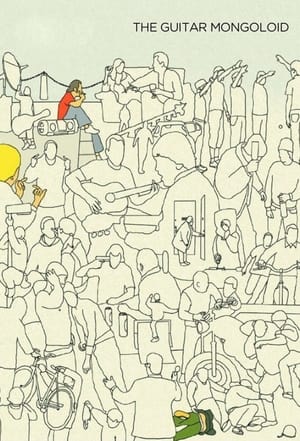
The Guitar Mongoloid
2004 • 1h 29min • ★ 5.5/10 • Sweden
Directed by: Ruben Östlund
Cast: Erik Rutström, Ola Sandstig, Britt-Marie Andersson, Julia Persdotter, Mikael Allu
A 12-year-old boy making basic punk songs, grown men playing with guns, a neurotic woman with euphoric happiness targeting self destruction – a Swedish everyday life you've never seen before.
“The Guitar Mongoloid” is a 2004 Taiwanese film directed by Ruben Fang.
The film tells the story of a young woman named Bai, who has Down syndrome and dreams of becoming a rock star.
Bai faces discrimination and prejudice from society, but she refuses to let that stop her from pursuing her dream.
The film features strong performances from non-professional actors, including the lead actress, who has Down syndrome in real life.
The film’s message is one of inclusivity and acceptance, and it offers a compassionate and empowering portrayal of a person with a disability who defies stereotypes and pursues her passion.
“The Guitar Mongoloid” has been praised for its sensitive portrayal of people with disabilities and for its portrayal of the struggles they face in society.
It is a heartwarming and inspiring film that offers a message of hope and determination in the face of adversity.
The film’s use of music and imagery also helps to create a visually striking and emotionally powerful cinematic experience that stays with the viewer long after the film has ended.
7. Incident by a Bank (2009)
“Incident by a Bank” is a Swedish short film directed by Ruben Östlund and released in 2009.
The film is based on a real-life incident that occurred in Stockholm in 2006, in which two men attempted to rob a bank but were apprehended by the police before they could escape.
The film uses a single shot, filmed from across the street, to capture the entire incident as it unfolds.
The camera remains stationary and the action takes place in real-time, giving the audience a sense of being a witness to the event.
Despite its short running time, “Incident by a Bank” is a masterful work of filmmaking, and is celebrated for its technical proficiency and its exploration of the complexities of human behavior in a high-pressure situation.
The film challenges its viewers to consider the impact of our actions on those around us, and to reflect on the ways in which we respond to crisis and conflict.
It is a thought-provoking and emotionally powerful work of cinema that continues to resonate with audiences today.
- Amazon Prime Video (Video on Demand)
- Bahador Foladi, Ramtin Parvaneh, Leif Edlund (Actors)
- Ruben Östlund (Director) - Ruben Östlund (Writer)
- English (Playback Language)
- English (Subtitle)
3 Characteristics of Ruben Östlund Films
Ruben Östlund’s films are known for their unique style and approach, and here are three characteristics that can be found in his work:
Satirical commentary on contemporary society: Ruben Östlund’s films often explore complex issues related to contemporary society, including topics such as masculinity, social class, and the art world.
His films are not afraid to take a critical look at society and highlight its contradictions, absurdities, and hypocrisies.
Long, static shots: Ruben Östlund’s films often feature long, static shots that allow the viewer to reflect on the action and themes.
These shots can be highly engaging and powerful, inviting the viewer to take a more active role in the story and encouraging a deeper understanding of the characters and their motivations.
Dark humor: Despite exploring serious issues, Ruben Östlund’s films often employ a dark sense of humor. The humor can be highly satirical and biting, but also has a deeper social commentary that is relevant to contemporary society.
The humor can be highly effective at highlighting contradictions and absurdities in society, while also encouraging a deeper reflection on the human condition.
3 Reasons Why You Should Watch Ruben Östlund Films
Ruben Östlund is a Swedish filmmaker known for his satirical and thought-provoking films. Here are three reasons why you should watch his films:
Incisive social commentary: Östlund’s films are known for their sharp and incisive social commentary.
He often uses satire to explore issues such as social inequality, human behavior, and cultural norms. His films are thought-provoking and challenge viewers to question their own assumptions and beliefs.
Innovative storytelling techniques: Östlund’s films are notable for their innovative storytelling techniques.
He often uses long takes, static camera shots, and non-linear narratives to create a unique and immersive cinematic experience. His films are visually stunning and push the boundaries of traditional filmmaking.
Compelling and complex characters: Östlund’s films are characterized by their complex and nuanced characters.
He is known for his ability to create characters that are both flawed and sympathetic, and his films often explore the inner lives of these characters in a deep and meaningful way. His films are emotionally resonant and leave a lasting impact on viewers.
Overall, Östlund’s films are must-watch for anyone interested in thought-provoking and innovative cinema. They are challenging, engaging, and offer a unique perspective on the world around us.
Best Ruben Östlund Films – Wrapping Up
Ruben Östlund is a Swedish filmmaker known for his thought-provoking and challenging films that explore contemporary social issues. Here are some of his best films:
Force Majeure (2014) – A family skiing trip turns into a psychological drama when an avalanche threatens their safety, and the father’s instinctual reaction during the crisis brings about a series of consequences.
The Square (2017) – This Palme d’Or-winning film is a satire on the art world that follows a museum curator as he deals with a series of events that disrupt his life, including the theft of his phone and the creation of a provocative art installation.
Play (2011) – Based on a real-life event, this film depicts a group of young boys who are manipulated and robbed by a group of older boys, and explores the complex social dynamics that allow the robbery to occur.
Involuntary (2008) – A collection of five interconnected stories about conformity and social pressure, this film delves into themes of group mentality and peer pressure.
Triangle of Sadness (2021) – A sharp, biting satire of the fashion industry, this film follows a model and a wealthy businessman as they navigate a world of superficiality, greed, and exploitation.
Overall, Ruben Östlund’s films are known for their uncompromising vision and their willingness to tackle complex and challenging themes. His work is regarded as some of the most thought-provoking and socially relevant in contemporary cinema.







![Involuntary (2008) ( De ofrivilliga ) ( Happy Sweden ) [ NON-USA FORMAT, PAL, Reg.2 Import - United Kingdom ]](https://m.media-amazon.com/images/I/51tK+sCK6WL.jpg)


